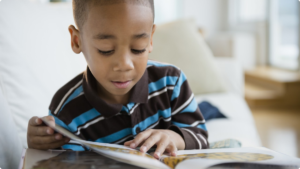Home » Commentary » Opinion » Phonics science vs the ‘feels’
· Ideas@TheCentre
 The phonics debate co-hosted by the Centre for Independent Studies and the Australian College of Educators was supposed to be about the best way to teach phonics. It is a given that numerous other factors contribute to reading success, including children’s language experiences in early childhood. But phonics instruction is still a point of contention — so much so, that 480 people turned up to the debate and another 1000 watched online from all over the world.
The phonics debate co-hosted by the Centre for Independent Studies and the Australian College of Educators was supposed to be about the best way to teach phonics. It is a given that numerous other factors contribute to reading success, including children’s language experiences in early childhood. But phonics instruction is still a point of contention — so much so, that 480 people turned up to the debate and another 1000 watched online from all over the world.
The thousands of scientific studies on reading development are incredibly complex, yet remarkably consistent. They show the primary neurological pathway for beginning readers is between the visual (print) and phonological (sound) areas of the brain. The semantic (meaning) part of the brain is engaged when children know what the word they are reading sounds like. Over time, skilled readers can make the leap straight from print to meaning but the distinction between novice and skilled reading has important implications for teaching reading.
My team at the debate included Distinguished Professor Anne Castles and champion primary school teacher Troy Verey. Professor Castles is among the world’s best reading researchers. What she doesn’t know about reading development is probably not worth knowing, so we possibly had an unfair advantage. We concisely outlined the scientific evidence of reading development and explained which teaching methods best reflected the evidence. Our case was that ensuring all children learn to read relies on teachers having high levels of knowledge and expertise, and not accepting that some children will not learn. Good teaching is crucial.
Instead of providing evidence and arguments to counter ours, the opposing team — Professor Robyn Ewing and Dr Kathy Rushton from Sydney University and Mark Diamond, principal of Lansvale Public School — took the debate in a different direction.
Having resurrected and waved around the fallacious straw man argument we thought we had buried at the beginning of the debate — that we believed phonics alone is enough for reading — the opposing team argued that learning to read has very little to do with the way children are taught at school. The message seemed to be: children will learn to read if their mothers talk and read to them from birth, and if they have access to books. (The corollary being that if children can’t read, they have bad mothers?). At school, teaching reading is about ‘rich conversations’ and ‘relationships’.
The strange dichotomy is that the latter perspective is perceived as being the teacher-friendly view, while the perspective that recognises that evidence-informed expert teaching is critical and should be valorised, is disparaged as being ‘robotic’ and anti-teacher.
There was applause from the audience when Dr Rushton admitted she has not engaged with the scientific research on reading instruction; she relies on what she learned in her teaching degree some years ago, and what she has seen in the classroom. While ever this is considered acceptable, let alone laudable, teaching will struggle to be seen as a profession.
Phonics science vs the ‘feels’